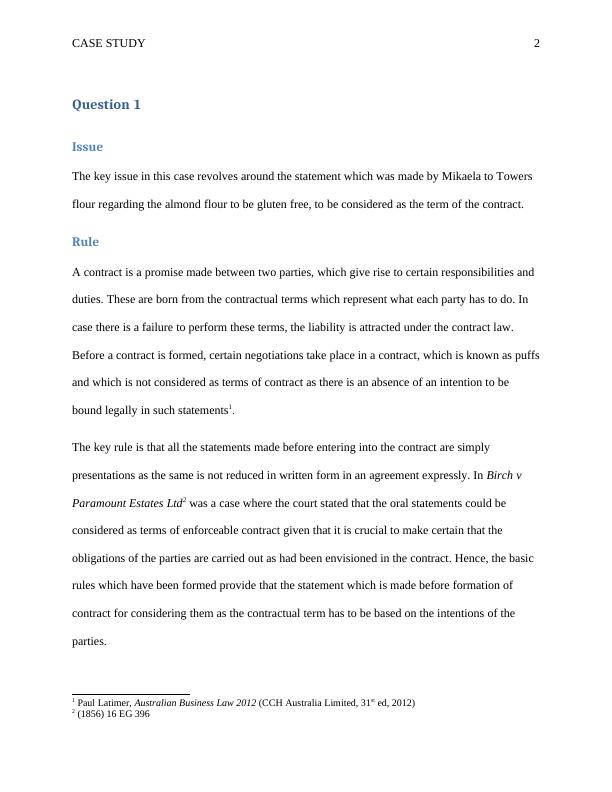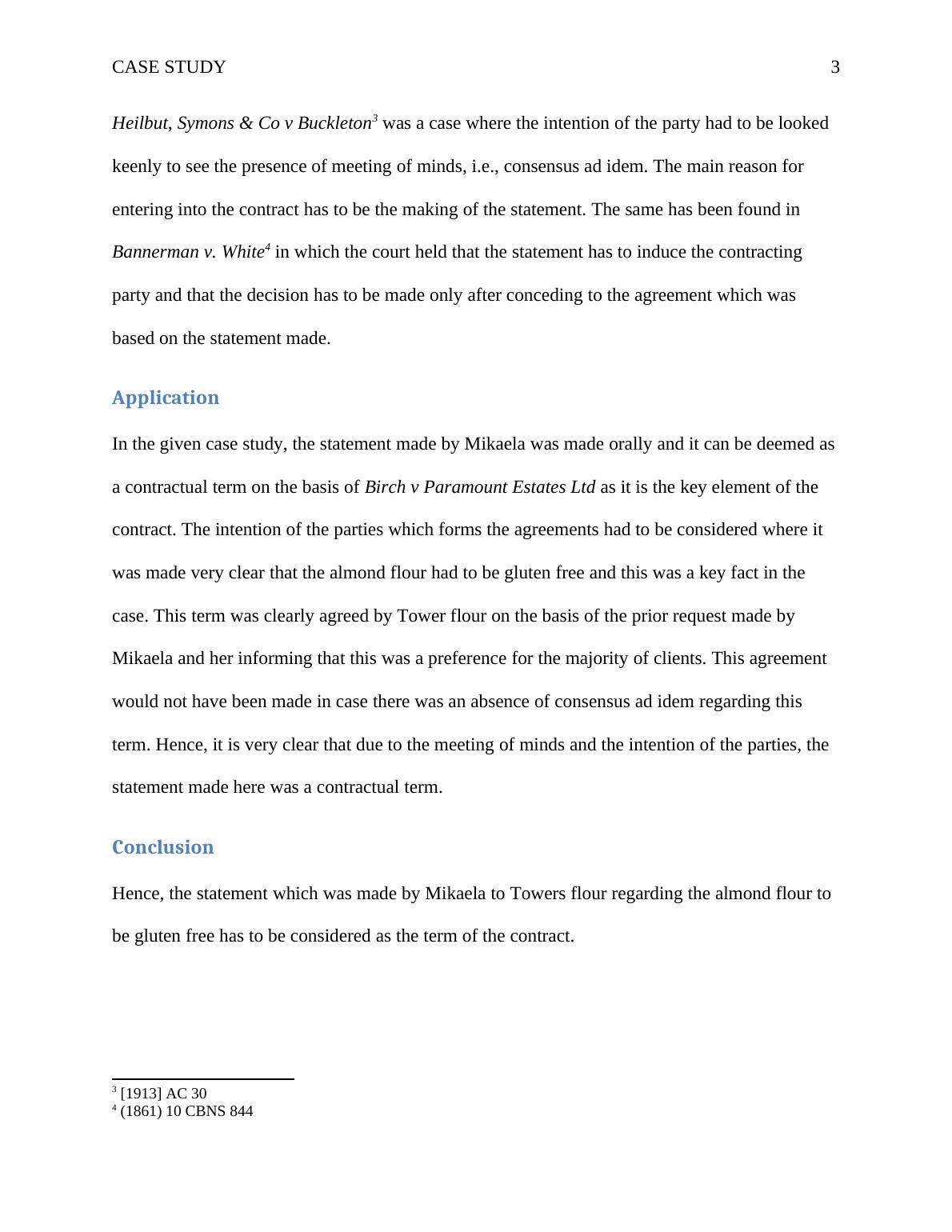BLST2BSL Introduction to Business Law And Ethics
Added on 2020-03-01
7 Pages1543 Words112 Views
End of preview
Want to access all the pages? Upload your documents or become a member.
BLST2BSL - Introduction To Business Law And Ethics
|8
|1490
|112
BLST2BSL - Principle of Oral Contract in Business Law assignment
|6
|1363
|144
BLST2BSL Introduction to Business Law
|9
|1805
|70
North West Metropolitan Regional Hospital Board
|9
|1871
|18
Business Law and Ethics Common Law Assignment
|12
|2718
|137
The Almond Flavour in BP Refinery v Shire of Hastings (BP Refinery v Philips Electronique)
|6
|1329
|398



